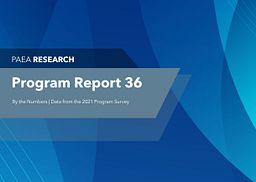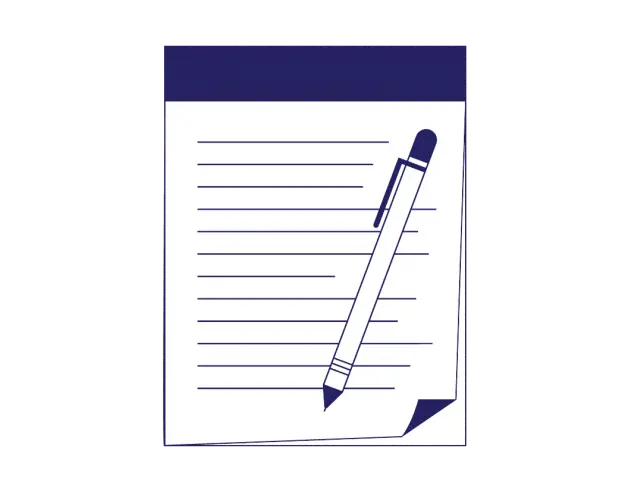- Public Resources
- Publishing Your Dissertation in a…

Publishing Your Dissertation in a Scholarly Journal
So you’ve decided you want to earn a PhD. You have read about the road blocks , you’ve selected your committee, and you’ve started writing your dissertation. But why start thinking about a publication? What does that have to do with earning the ultimate degree?
Writing a dissertation without a publication is like going to the trouble of making a cake but not baking it. No one can taste your cake, no one can benefit from your hard work—of course, no one can criticize your work either. But without a publication, or two or three, the dissertation is not technically a total success. You’d be amazed at how many people don’t get a publication out of their dissertation. Without advanced planning, a publication likely won’t happen, because, once again, there are often unanticipated roadblocks.
1. Publication will be completely driven by you and no one else. A publication will not be on the priority list of your dissertation committee. And you will likely be the only one to understand where to publish.
2. Planning is the most important step and the only way to be successful. If you wait until after you go through the dissertation process, you will be too exhausted to publish, and it won’t happen for a year or two. You must plan.
3. Configure your dissertation for three separate publications. This may be three separate chapters, or it may be three different data sets or arms of your data. Link this to the selection of your committee. In my previous articles, I recommended choosing a committee wisely, with different members being associated with different jobs. Committee members should not have similar areas of expertise. Their “jobs” should not overlap. There should be a content expert or literature review expert, a methods person, a results person and a “whip.” Ideally, the “whip” (think politics, as in majority whip or minority whip in Congress) is your dissertation chair. The jobs of each member should be distinct to avoid having members fighting or making conflicting suggestions. Each article should be aligned with a separate expert. So there can be a Review article, a Methods article, and a Results article.
4. You get to decide who is listed as an author on your articles. You will be first author, and your mentor should be last author (a position of honor). If a committee member does not contribute, they ethically should not be included in the list of authors. Many journals now ask you to list the authors along with their meaningful contributions.
5. Decide ahead of time the journals in which you wish to publish. Full disclosure — I am on the board of the Journal of the American Academy of PAs (JAAPA), and I’m a reviewer for the Journal of Physician Assistant Education (JPAE). I’m going to recommend these PA journals for one of your publications. Here is my pitch (although biased): We are THE scholarly journals for the profession. If your data is completely focused on PA education, then select JPAE. Think about JAAPA for any research on PAs themselves or PA analogues. Select a PA journal for a personal touch and some really important feedback. Your article will be on a stage with your peers. This gives you the home crowd advantage.
6. Lose ownership. Remember how I said your dissertation is like your baby? Well, your baby now has gone through elementary school and the tumultuous teenage years and currently is entering college. Your publication needs you to back off and give it some space. It will leave home for a while (often for the long review process). When it comes back, it might need to do some laundry, but it should essentially not look at all like the baby you once knew. A publication should look like a publication, not a dissertation. It should be neat and mature and all grown up.
7. Try for the highest level journal you can realistically get published in. Here is the main problem: time. You cannot ethically submit the same article to multiple journals. You will need to make sure you have three completely separate articles in order to submit to multiple journals. There are many people who believe you should publish in the most prestigious journal you can make it into. I do not disagree with this philosophy; however, the alternative is that your work might not get read in a higher scholarly journal because PAs and PA educators don’t tend to read these other journals. This is for you to decide. There are websites that can help you determine where to publish. But be careful and check out Beall’s List, a list of potentially predatory “scholarly” open-access publishers.
8. Best of luck — and don’t fail to publish. Don’t bake your cake and not put it in the oven. Remember to reach out to your peers within the profession to aid in your success. Ultimately, your committee will be pleased to add a publication to their CVs. They will remember this as their reward for all the hard work that they (and you) put into your PhD.
A publication is the lasting legacy for all of your tough efforts and sacrifice. It is the “so what” of all you have put into this academic Mt. Everest. Consider the impact that your work will have on the profession. Don’t run the marathon (or climb the mountain) and not cross the finish line!
Jennifer Coombs, PhD, MPAS, PA-C
Related news & alerts.

Broaden Your Research Capacity and Professional Networks with AAPA-PAEA Research Fellowship

The Numbers Are In: PAEA Announces the Release of Program Report 36

Don Pedersen Awardees Address Student Performance and Well-Being

Fellows Share Research at Forum
- Link to facebook
- Link to linkedin
- Link to twitter
- Link to youtube
- Writing Tips
The Ultimate Guide to Getting Your Thesis Published in a Journal

7-minute read
- 25th February 2023
Writing your thesis and getting it published are huge accomplishments. However, publishing your thesis in an academic journal is another journey for scholars. Beyond how much hard work, time, and research you invest, having your findings published in a scholarly journal is vital for your reputation as a scholar and also advances research findings within your field.
This guide will walk you through how to make sure your thesis is ready for publication in a journal. We’ll go over how to prepare for pre-publication, how to submit your research, and what to do after acceptance.
Pre-Publication Preparations
Understanding the publishing process.
Ideally, you have already considered what type of publication outlet you want your thesis research to appear in. If not, it’s best to do this so you can tailor your writing and overall presentation to fit that publication outlet’s expectations. When selecting an outlet for your research, consider the following:
● How well will my research fit the journal?
● Are the reputation and quality of this journal high?
● Who is this journal’s readership/audience?
● How long does it take the journal to respond to a submission?
● What’s the journal’s rejection rate?
Once you finish writing, revising, editing, and proofreading your work (which can take months or years), expect the publication process to be an additional three months or so.
Revising Your Thesis
Your thesis will need to be thoroughly revised, reworked, reorganized, and edited before a journal will accept it. Journals have specific requirements for all submissions, so read everything on a journal’s submission requirements page before you submit. Make a checklist of all the requirements to be sure you don’t overlook anything. Failing to meet the submission requirements could result in your paper being rejected.
Areas for Improvement
No doubt, the biggest challenge academics face in this journey is reducing the word count of their thesis to meet journal publication requirements. Remember that the average thesis is between 60,000 and 80,000 words, not including footnotes, appendices, and references. On the other hand, the average academic journal article is 4,000 to 7,000 words. Reducing the number of words this much may seem impossible when you are staring at the year or more of research your thesis required, but remember, many have done this before, and many will do it again. You can do it too. Be patient with the process.
Additional areas of improvement include>
· having to reorganize your thesis to meet the section requirements of the journal you submit to ( abstract, intro , methods, results, and discussion).
· Possibly changing your reference system to match the journal requirements or reducing the number of references.
· Reformatting tables and figures.
· Going through an extensive editing process to make sure everything is in place and ready.
Identifying Potential Publishers
Many options exist for publishing your academic research in a journal. However, along with the many credible and legitimate publishers available online, just as many predatory publishers are out there looking to take advantage of academics. Be sure to always check unfamiliar publishers’ credentials before commencing the process. If in doubt, ask your mentor or peer whether they think the publisher is legitimate, or you can use Think. Check. Submit .
If you need help identifying which journals your research is best suited to, there are many tools to help. Here’s a short list:
○ Elsevier JournalFinder
○ EndNote Matcher
○ Journal/Author Name Estimator (JANE)
○ Publish & Flourish Open Access
· The topics the journal publishes and whether your research will be a good fit.
Find this useful?
Subscribe to our newsletter and get writing tips from our editors straight to your inbox.
· The journal’s audience (whom you want to read your research).
· The types of articles the journal publishes (e.g., reviews, case studies).
· Your personal requirements (e.g., whether you’re willing to wait a long time to see your research published).
Submitting Your Thesis
Now that you have thoroughly prepared, it’s time to submit your thesis for publication. This can also be a long process, depending on peer review feedback.
Preparing Your Submission
Many publishers require you to write and submit a cover letter along with your research. The cover letter is your sales pitch to the journal’s editor. In the letter, you should not only introduce your work but also emphasize why it’s new, important, and worth the journal’s time to publish. Be sure to check the journal’s website to see whether submission requires you to include specific information in your cover letter, such as a list of reviewers.
Whenever you submit your thesis for publication in a journal article, it should be in its “final form” – that is, completely ready for publication. Do not submit your thesis if it has not been thoroughly edited, formatted, and proofread. Specifically, check that you’ve met all the journal-specific requirements to avoid rejection.
Navigating the Peer Review Process
Once you submit your thesis to the journal, it will undergo the peer review process. This process may vary among journals, but in general, peer reviews all address the same points. Once submitted, your paper will go through the relevant editors and offices at the journal, then one or more scholars will peer-review it. They will submit their reviews to the journal, which will use the information in its final decision (to accept or reject your submission).
While many academics wait for an acceptance letter that says “no revisions necessary,” this verdict does not appear very often. Instead, the publisher will likely give you a list of necessary revisions based on peer review feedback (these revisions could be major, minor, or a combination of the two). The purpose of the feedback is to verify and strengthen your research. When you respond to the feedback, keep these tips in mind:
● Always be respectful and polite in your responses, even if you disagree.
● If you do disagree, be prepared to provide supporting evidence.
● Respond to all the comments, questions, and feedback in a clear and organized manner.
● Make sure you have sufficient time to make any changes (e.g., whether you will need to conduct additional experiments).
After Publication
Once the journal accepts your article officially, with no further revisions needed, take a moment to enjoy the fruits of your hard work. After all, having your work appear in a distinguished journal is not an easy feat. Once you’ve finished celebrating, it’s time to promote your work. Here’s how you can do that:
● Connect with other experts online (like their posts, follow them, and comment on their work).
● Email your academic mentors.
● Share your article on social media so others in your field may see your work.
● Add the article to your LinkedIn publications.
● Respond to any comments with a “Thank you.”
Getting your thesis research published in a journal is a long process that goes from reworking your thesis to promoting your article online. Be sure you take your time in the pre-publication process so you don’t have to make lots of revisions. You can do this by thoroughly revising, editing, formatting, and proofreading your article.
During this process, make sure you and your co-authors (if any) are going over one another’s work and having outsiders read it to make sure no comma is out of place.
What are the benefits of getting your thesis published?
Having your thesis published builds your reputation as a scholar in your field. It also means you are contributing to the body of work in your field by promoting research and communication with other scholars.
How long does it typically take to get a thesis published?
Once you have finished writing, revising, editing, formatting, and proofreading your thesis – processes that can add up to months or years of work – publication can take around three months. The exact length of time will depend on the journal you submit your work to and the peer review feedback timeline.
How can I ensure the quality of my thesis when attempting to get it published?
If you want to make sure your thesis is of the highest quality, consider having professionals proofread it before submission (some journals even require submissions to be professionally proofread). Proofed has helped thousands of researchers proofread their theses. Check out our free trial today.
Share this article:
Post A New Comment
Got content that needs a quick turnaround? Let us polish your work. Explore our editorial business services.
9-minute read
How to Use Infographics to Boost Your Presentation
Is your content getting noticed? Capturing and maintaining an audience’s attention is a challenge when...
8-minute read
Why Interactive PDFs Are Better for Engagement
Are you looking to enhance engagement and captivate your audience through your professional documents? Interactive...
Seven Key Strategies for Voice Search Optimization
Voice search optimization is rapidly shaping the digital landscape, requiring content professionals to adapt their...
4-minute read
Five Creative Ways to Showcase Your Digital Portfolio
Are you a creative freelancer looking to make a lasting impression on potential clients or...
How to Ace Slack Messaging for Contractors and Freelancers
Effective professional communication is an important skill for contractors and freelancers navigating remote work environments....
3-minute read
How to Insert a Text Box in a Google Doc
Google Docs is a powerful collaborative tool, and mastering its features can significantly enhance your...

Make sure your writing is the best it can be with our expert English proofreading and editing.
Open Access Theses and Dissertations
Thursday, April 18, 8:20am (EDT): Searching is temporarily offline. We apologize for the inconvenience and are working to bring searching back up as quickly as possible.
Advanced research and scholarship. Theses and dissertations, free to find, free to use.
Advanced search options
Browse by author name (“Author name starts with…”).
Find ETDs with:
Written in any language English Portuguese French German Spanish Swedish Lithuanian Dutch Italian Chinese Finnish Greek Published in any country US or Canada Argentina Australia Austria Belgium Bolivia Brazil Canada Chile China Colombia Czech Republic Denmark Estonia Finland France Germany Greece Hong Kong Hungary Iceland India Indonesia Ireland Italy Japan Latvia Lithuania Malaysia Mexico Netherlands New Zealand Norway Peru Portugal Russia Singapore South Africa South Korea Spain Sweden Switzerland Taiwan Thailand UK US Earliest date Latest date
Sorted by Relevance Author University Date
Only ETDs with Creative Commons licenses
Results per page: 30 60 100
October 3, 2022. OATD is dealing with a number of misbehaved crawlers and robots, and is currently taking some steps to minimize their impact on the system. This may require you to click through some security screen. Our apologies for any inconvenience.
Recent Additions
See all of this week’s new additions.
About OATD.org
OATD.org aims to be the best possible resource for finding open access graduate theses and dissertations published around the world. Metadata (information about the theses) comes from over 1100 colleges, universities, and research institutions . OATD currently indexes 7,241,108 theses and dissertations.
About OATD (our FAQ) .

Visual OATD.org
We’re happy to present several data visualizations to give an overall sense of the OATD.org collection by county of publication, language, and field of study.
You may also want to consult these sites to search for other theses:
- Google Scholar
- NDLTD , the Networked Digital Library of Theses and Dissertations. NDLTD provides information and a search engine for electronic theses and dissertations (ETDs), whether they are open access or not.
- Proquest Theses and Dissertations (PQDT), a database of dissertations and theses, whether they were published electronically or in print, and mostly available for purchase. Access to PQDT may be limited; consult your local library for access information.
Dissertation & Thesis Publishing: Home
- LIU Post Print Dissertation Retrieval
- Ask a Librarian
- Dissertation/Thesis Binding
How To Publish Your Dissertation or Thesis Online and/or in Digital Commons@LIU repository
You have three options for publishing your dissertation or thesis online:
- Publish your dissertation or thesis in Digital Commons @ LIU - our Institutional Respository
- Publish your dissertation or thesis with Proquest /UMI Digital Dissertation Publishing (EDT Administrator)
- Publish your dissertation or thesis in BOTH of the above.
Proquest/UMI Digital Dissertation & Thesis Publishing
The library provides access to an online dissertation or thesis publishing platform through Proquest/UMI Digital Dissertation & Thesis Publishing. When you publish your dissertation or thesis online using this service it will be available in the Proquest Dissertation & Theses Global database and in Dissertations & Theses @ LIU database . These databases can also be found on our library online databases page. The links are provided below for your convenience. You may submit your dissertation or thesis once you have permission from your department to do so.
You can go to the LIU dedicated “ETD Administrator” website at:
http://www.etdadmin.com/liu
On this page you will find links to information about publishing your dissertation or thesis online. You are encouraged to read all of the provided information under the “Resources and Guidelines” tab so that you have a full understanding of the process and of your rights as an author.

If you have not already done so you will first need to create an account by clicking on the "Sign up and get started today!" button. Once you have logged in and are ready to publish, you will be asked several questions during the process concerning copyright protection, open access publishing, and if you wish to delay (embargo) the publication of your dissertation or thesis. The “traditional” publishing option is free of cost. If you choose additional options you can pay online with a credit card. The online resources provided should answer your questions.
You will be asked for your "Institutional Student ID" number during the process. This is not your University login. Your Institutional Student ID number can be found within your "My LIU" account or by contacting your academic department.
During the process you can also choose to order one or several personal print copies. These would be in addition to the bound copies you may have already ordered through the library if your department requires this. This online publishing service for digital dissertations and the bound dissertations oe thesis service in the library are separate programs. Please contact the Dean's office (516-299-2764) concerning ordering print copies of a dissertation through the library.
Once you submit your dissertation, the ETD Administrator will review your submission for formatting and other quality control issues. The final submittal to the Proquest Dissertation & Theses Full-text database will take place after your graduation.
You must follow the formatting guidelines as stipulated by your department. It is particularly important that you follow the correct format on the title page so that your dissertation or thesis can be indexed correctly. For security reasons, do not include a page containing personal signatures. Please remove the page or submit a replacement page without the signatures . Proquest has advised not to include signatures. If you include signatures in the document, you will need to resubmit and the publication of your dissertation or thesis will be delayed.
The Proquest publishing process can take up to 8 to 12 weeks to complete. You will receive an email from Proquest when your dissertation or thesis is published in the databases.
If you still have questions concerning this program you can contact the ETD administrator, professor Natalia Tomlin ([email protected]).
In addition to submitting your dissertation or thesis to the ProQuest EDT Administrator, you can also submit your dissertation to the LIU Institutional Repository Digital Commons@LIU. You do not need to submit your dissertation or thesis to the Digital Commons separately. During the submission process to ProQuest, you will be asked to indicate if you want your work to be in the Digital Commons @LIU repository as well. If you chose so, we will upload your work in the repository on your behalf.
Dear Student,
We would like to invite you to submit your dissertation or thesis (free of charge) to our Digital Commons @LIU open access Institutional Repository.
Your submission to Digital Commons (should you chose to submit) would be in addition to submitting the dissertation or thesis to ProQuest. The advantage is broader dissemination of your scholarship. PLEASE NOTE that if you already indicated that you wish your work to be submitted into repository during ProQuest submission process, you don't need to do the steps outlined below. H owever, if you did not submit the work to ProQuest, OR you forgot to indicate that you wish your work to be in our repository, please follow the procedure " How to submit your thesis/dissertations to Digital Commons@LIU"
How to submit your thesis/dissertations to Digital Commons@LIU:
- sign the submission agreement http://digitalcommons.liu.edu/creative_works_permission.pdf (electronic signature is fine) and scan it.
- email scanned permission and the copy of your thesis/dissertation to http://digitalcommons.liu.edu . Please note that your paper can be in either World Document or PDF format. The front page has to be free of signatures.
- The library will upload your dissertation or thesis once/if your agreement is received.
Once your dissertation or thesis is posted:
- Once your work is uploaded, the system will automatically create an account for you in BePress. The account will use email address that you supplied during submission. Bepress is the name of platform that hosts our repository. You can log into the system and create/change your password. To do so, log into the site via "My Account" link (you will need to use email address that your supplied during submission process). Click on the "Edit Profile" option from "My Account" page and update email.
- your dissertation or thesis is periodically featured as a Paper of the Day
- you receive URL “for life’ that you can include in social media sites, digital portfolio, blackboard etc.
- you also receive monthly report if your research is downloaded during specific month period
- you have access to personal author dashboard that shows the location in the world where your work is read and downloaded as well as by what kind of organizations (educational, commercial etc.)
- your work is disseminated world-wide
- potential for increased Google citation statistics
Proquest Dissertation Databases
- Dissertations & Theses @ LIU
- Dissertations & Theses Global
Example Title pages
- Library and Information Science
- Clinical Psychology
ETD WorkFlow
Attribution.
Created by Professor Robert Battenfeld
- Next: LIU Post Print Dissertation Retrieval >>
- Last Updated: Jan 6, 2024 4:05 PM
- URL: https://liu.cwp.libguides.com/dissertations
Revising Your Dissertation for Publication
While a dissertation’s in-depth research and analysis can provide a strong foundation for a book, the dissertation itself is not a book and will not be published by an academic press without substantial revisions. Some acquisitions editors are interested first books, especially if they bring new perspectives and fresh ideas to a field, while others do not often publish first books. If you are considering submitting your dissertation for publication, we recommend that you contact editors at university presses that publish in your subject area for guidance on revising your work. Many editors prefer to be involved in the early stages of this process so they can advise you on how to structure the book and your arguments to create a publishable book. Editors generally require changes in the length, content, tone, and style of a dissertation in order to produce a book that will appeal to buyers in the academic market. Read more about submitting a proposal in our Scholarly Publishing Guide .
Below are selected resources to help you revise your dissertation for publication as a book or journal article(s).
Advice from publishers
- Harvard University Press
- Palgrave Macmillan
- Rowman & Littlefield
- Taylor & Francis
- University of North Carolina Press
- Yale University Press
- Publisher Policies on using content in both a thesis or dissertation and an article (from MIT Libraries)
- From Dissertation to Book by William Germano (Lauinger Library, 4th Floor, PN162 .G37 2013)
- Revising Your Dissertation, Updated Edition : Advice from Leading Editors (updated edition, 2008) edited by Beth Luey (online; GU NetID and password required)
- From Dissertation to Book , Duke University (February 27, 2018)
- From Dissertation to Book ( full transcript ), Harvard University (December 17, 2010)
- How To Turn Your Dissertation into a Book , Yale University (April 6, 2016)
- From Dissertation to Book by Leonard Cassuto (Chronicle of Higher Education, May 30, 2011)
- From Dissertation to Published Book (lanugageandphilosophy.com report on an American Comparative Literature Association workshop)
- Give It a Rest by Laura Portwood-Stacer (Inside Higher Ed, August 6, 2019)
- The Stages of Revising a Dissertation into a Book by Amy Benson Brown (Journal of Scholarly Publishing, vol. 52 no. 2, 2021, p. 127-140) (GU NetID and password required)
- Turning Your Dissertation into a Book (University of Washington)
- Publishing your Dissertation (American Psychological Association)
Librarians/Admins
- EBSCOhost Collection Manager
- EBSCO Experience Manager
- EBSCO Connect
- Start your research
- EBSCO Mobile App
Clinical Decisions Users
- DynaMed Decisions
- Dynamic Health
- Waiting Rooms
- NoveList Blog
EBSCO Open Dissertations
EBSCO Open Dissertations makes electronic theses and dissertations (ETDs) more accessible to researchers worldwide. The free portal is designed to benefit universities and their students and make ETDs more discoverable.
Increasing Discovery & Usage of ETD Research
EBSCO Open Dissertations is a collaboration between EBSCO and BiblioLabs to increase traffic and discoverability of ETD research. You can join the movement and add your theses and dissertations to the database, making them freely available to researchers everywhere while increasing traffic to your institutional repository.
EBSCO Open Dissertations extends the work started in 2014, when EBSCO and the H.W. Wilson Foundation created American Doctoral Dissertations which contained indexing from the H.W. Wilson print publication, Doctoral Dissertations Accepted by American Universities, 1933-1955. In 2015, the H.W. Wilson Foundation agreed to support the expansion of the scope of the American Doctoral Dissertations database to include records for dissertations and theses from 1955 to the present.
How Does EBSCO Open Dissertations Work?
Your ETD metadata is harvested via OAI and integrated into EBSCO’s platform, where pointers send traffic to your IR.
EBSCO integrates this data into their current subscriber environments and makes the data available on the open web via opendissertations.org .
You might also be interested in:


How to Get Your Thesis Published
Writing a thesis is tough. Current or recent graduate students understand the time and effort required to successfully complete their research program. Indeed, graduate training involves extensive amounts of research that often reflects years of failures and successes. This research often leads to some type of novel insight, which is organized into either a t hesis paper or dissertation.
When writing a dissertation or a thesis , there is much to consider. Both require extensive amounts of work and reflect the years of research conducted by the student. Some universities require that students publish this final research in peer-reviewed journals prior to being considered eligible to graduate. Meanwhile, others do not require the thesis to be officially published. Ultimately, regardless of the graduation requirements, certain career tracks for PhDs or Master’s students require publication in peer-reviewed journals.
Graduate Writing
The type of graduate writing that is required by a student’s university depends upon where the graduate student has studied. In Europe, a doctoral thesis reflects original research, whereas, in the USA, a thesis is often a shorter document associated with a Master’s degree.
Whatever the title, extensive research projects are organized into a final document. Some of these written documents can be formatted into a book. Before publishing, a graduate student should consider several factors prior to publishing. Namely, the student should ask, is my research
- Rigorous: Is it methodical, scholarly work?
- Significant: Why does it matter to your potential audience?
- Original: Is it novel and unique?
- Marketable: Are there potential customers?
When to Publish?
In the past, universities have published theses graduation research summaries in only a hard copy format, such as a bound book. Now, some theses or dissertations are available online, often with a Creative Commons license. This can be a problem due to the requirement by journals that manuscripts contain only unpublished and original data. However, generally, a thesis or dissertation consisting of original, previously unpublished research that has been made available by your home institution does not prevent you from publishing. Rather, journals will consider these theses and dissertations that were published by universities as, understandably, still sufficiently novel data. Furthermore, peer review is an integral component of publication. To pass the muster of peer review, it is important to consider the feedback of dissertation or thesis committee. The critiques of your committee will often mirror the potential concerns of your peer reviewers.
Related: Planning to publish your Ph.D. research in a good journal? Check these journal selection guidelines now!
Tips and Common Concerns
When going to publish your dissertation, there are generally some common errors made by graduate students.
First, it is generally a good practice to reference or acknowledge the thesis. Since the dissertation may be available publicly, it is important to be transparent about the source of the data. Similarly, always inform journals that some research contained within a thesis or dissertation was published either in a print-only version or in an online repository.
You can publish your thesis as a monograph or a series of articles. It can depend on the type of thesis.
- Traditional thesis: It is usually in the form of chapters and is an original work written by an individual student.
- Thesis by publication: It consists of papers that have already been published in a journal.
According to COPE guidelines , when thesis contains original unpublished work, it should not be considered as prior publication. Therefore, it is acceptable to be published as a manuscript or a monograph in a journal, even if it is available freely in university repositories and Creative Common license may or may not apply. However, if the thesis is of the second type, then the papers will be considered as prior publication and are not acceptable as original works for publication. As a research lab hosts student’s work, it is important to first review the policies of your host university. Similarly, since fields transform rapidly, don’t wait too long before publishing. If you do, you run the risk of your literature review or methodology becoming outdated.
I have my dissertation i want to published
THANKS A LOT
Rate this article Cancel Reply
Your email address will not be published.

Enago Academy's Most Popular Articles

- Manuscripts & Grants
- Reporting Research
Writing a Research Literature Review? — Here are tips to guide you through!
Literature review is both a process and a product. It involves searching within a defined…

How to Develop a Good Research Hypothesis
The story of a research study begins by asking a question. Researchers all around the…

- Publishing Research
- Submitting Manuscripts
13 Tips to Prepare for Your PhD Dissertation Defense
How well do you know your project? Years of experiments, analysis of results, and tons…

- Career Corner
- PhDs & Postdocs
How to Manage Your PhD Timeline for Smoother Research Completion
It’s finally happening! The university has sent you an acceptance letter for the PhD program you had applied to. Getting into a…

- Journal Guidelines
How to Use CSE Style While Drafting Scientific Manuscripts
What is CSE Style Guide? CSE stands for Council of Science Editors. Originated in the…
Top 12 Potential PhD Viva Questions and How to Answer Them
When Your Thesis Advisor Asks You to Quit
Virtual Defense: Top 5 Online Thesis Defense Tips

Sign-up to read more
Subscribe for free to get unrestricted access to all our resources on research writing and academic publishing including:
- 2000+ blog articles
- 50+ Webinars
- 10+ Expert podcasts
- 50+ Infographics
- 10+ Checklists
- Research Guides
We hate spam too. We promise to protect your privacy and never spam you.
I am looking for Editing/ Proofreading services for my manuscript Tentative date of next journal submission:

As a researcher, what do you consider most when choosing an image manipulation detector?
- Dartmouth Libraries
Q. How can I get a copy of a dissertation that I need for my research?
- 6 Alumni Services
- 27 Baker-Berry Library
- 2 Biomedical Libraries
- 13 Borrow From Other Libraries
- 22 Business
- 4 Collections
- 16 Course Reserves
- 3 Dartmouth History
- 1 Dartmouth Library Depository
- 7 Economics
- 5 Engineering
- 3 Film & Video
- 1 Geography
- 6 Jones Media Center
- 1 Kresge Physical Sciences Library
- 11 Library Hours
- 12 Preservation
- 1 Psychological & Brain Sciences
- 3 Rauner Special Collections Library
- 5 Records Management
- 20 Scholarly Communication, Copyright, and Publishing
- 40 Search and Find
- 17 Services
- 1 Sherman Art Library
- 4 Study Space
- 27 Technical Support
- 11 Writing Your Paper
Answered By: Dartmouth Libraries Last Updated: Aug 20, 2023 Views: 14388
Try to find the dissertation online:
First, check the ProQuest Dissertations & Theses database to see if it is available in full text. Dissertations from 1997 to present are available in full text from ProQuest. In addition, most Dartmouth dissertations from 1993 to the present will be available online in ProQuest. You may find some pre-1997 dissertations in ProQuest as well.
Dissertations may also be available at no cost from the issuing institution's website. In addition to checking their web site, try using search tools such as Google Scholar or the Networked Digital Library of Theses and Dissertations .
If you still haven't found the dissertation, try checking ROAR to see if the university where the dissertation was written has a digital repository. If it does, try searching the repository for the thesis or dissertation.
Find out if the dissertation was published:
Some dissertations are subsequently published by academic presses. A quick way to find out is by searching for the author in WorldCat . Remember, the title of the published book may be different than the dissertation.
Requesting Dissertations:
If the dissertation was submitted to one of the Ivies, try requesting it through Borrow Direct .
Foreign dissertations are often available at the Center for Research Libraries. If you find the dissertation you need in the CRL Dissertation Catalog , you can request it through Interlibrary Loan .
All other requests for dissertations should be made through Interlibrary Loan .
- The Library will first try to borrow the dissertation directly from the holding institution.
- If it is unavailable for loan, the Library will try to purchase an electronic copy from a commercial supplier, such as ProQuest.
- The average cost for a dissertation is $32. Any costs exceeding $35 will be chargeable to you, provided that you agree to move forward with the purchase and pay the additional charges.
See also the Library's Research Guide for Dissertations & Theses.
Links & Files
- Research Guide: Dissertations & Theses
- Share on Facebook
Was this helpful? Yes 5 No 1
Comments (0)
Related topics.
- Writing Your Paper
Ask Us Now!

May 15, 2024
Tips and Resources for a Successful Summer of Dissertation Writing
By Yana Zlochistaya
Summer can be a strange time for graduate students. Gone are the seminars and workshops, the student clubs, and the working group, that structured the semester and provided us with a sense of community. Instead, we’re faced with a three-month expanse of time that can feel equal parts liberating and intimidating. This double-edged freedom is only exacerbated for those of us in the writing stage of our dissertation, when isolation and a lack of discipline can have a particularly big impact. For those hoping not to enter another summer with lofty plans, only to blink and find ourselves in August disappointed with our progress, we’ve compiled some tips and resources that can help.
According to Graduate Writing Center Director Sabrina Soracco, the most important thing you can do to set yourself up for writing success is to clarify your goals. She recommends starting this process by looking at departmental requirements for a completed dissertation. Consider when you would like to file and work backwards from that point, determining what you have to get done in order to hit that target. Next, check in with your dissertation committee members to set up an accountability structure. Would they prefer an end-of-summer update to the whole committee? A monthly check-in with your chair or one of your readers? Setting up explicit expectations that work for you and your committee can cut through the aimlessness that comes with a major writing project.
For those early on in their dissertation-writing process, a committee meeting is also a valuable opportunity to set parameters. “One of the problems with the excitement for the discipline that happens post-quals is that it results in too many ideas,” says Director Soracco. Your committee members should give you input on productive research directions so that you can begin to hone in on your project. It is also important to remember that your dissertation does not have to be the end-all-and-be-all of your academic research. Ideas that do not fit into its scope can end up becoming conference papers or even book chapters.
Once you have a clear goal that you have discussed with your committee, the hard part begins: you have to actually write. The Graduate Writing Center offers several resources to make that process easier:
- The Graduate Writing Community. This is a totally remote, two-month program that is based on a model of “gentle accountability.” When you sign up, you are added to a bCourses site moderated by a Graduate Writing Consultant. At the beginning of the week, everyone sets their goals in a discussion post, and by the end of the week, everyone checks in with progress updates. During the week, the writing consultants offer nine hours of remote synchronous writing sessions. As a writing community member, you can attend whichever sessions work best for your schedule. All that’s required is that you show up, set a goal for that hour, and work towards that goal for the length of two 25-minute Pomodoro sessions . This year’s summer writing community will begin in June. Keep your eye on your email for the registration link!
- Writing Consultations : As a graduate student, you can sign up for an individual meeting with a Graduate Writing Consultant. They can give you feedback on your work, help you figure out the structure of a chapter, or just talk through how to get started on a writing project.
- Independent Writing Groups: If you would prefer to write with specific friends or colleagues, you can contact Graduate Writing Center Director Sabrina Soracco at [email protected] so that she can help you set up your own writing group. The structure and length of these groups can differ; often, members will send each other one to five pages of writing weekly and meet the next day for two hours to provide feedback and get advice. Sometimes, groups will meet up not only to share writing, but to work in a common space before coming together to debrief. Regardless of what the groups look like, the important thing is to create a guilt-free space. Some weeks, you might submit an outline; other weeks, it might be the roughest of rough drafts; sometimes, you might come to a session without having submitted anything. As long as we continue to make progress (and show up even when we don’t), we’re doing what we need to. As Director Soracco puts it, “it often takes slogging through a lot of stuff to get to that great epiphany.”
Yana Zlochistaya is a fifth-year graduate student in the Department of Comparative Literature and a Professional Development Liaison with the Graduate Division. She previously served as a co-director for Beyond Academia.
How can I find my dissertation once it's published on ProQuest?
- Article Number: 000036728
- Author name: For best results, use "Last+First", or "au(First Last)"
- The title: For best results, put quotations around your title: "This is the Title of My Dissertation"
- Your publication number / publisher number: This is different than your 5-digit ETD submission ID, and is usually 8 digits long. You can search for the publication number by just entering it into the search field. For best results use: DISPUB(XXXXXXXX)
https://support.proquest.com/s/article/How-can-I-find-my-dissertation-once-it-s-published-on-ProQuest?language=en_US
Privacy regulations require that we get your consent to continue to collect, store and use the personal information submitted for account creation or collected while using our services.
I consent to the collection and use of my personal information consistent with the Privacy Policy . I acknowledge that use of the service is subject to the Terms & Conditions .
Report a Problem with this Article
Submit a case.
Having an issue? Submit a Support Case and we'll get right on it.
Chat with Us
Chat is now available. If you are looking for quick feedback, chat with us now.
We're here to help. Give us a call if you aren't finding answers to your questions.
ProQuest ExLibris is committed to empowering researchers and librarians around the world.
Copyright © 2024 ProQuest LLC

IMAGES
VIDEO
COMMENTS
STEP 3: Read and understand the Licensing and Rights sections of the publishing agreement. This agreement grants ProQuest/UMI the right to reproduce and disseminate your work according to the choices you make. This is a non-exclusive right; you may grant others the right to use your dissertation or thesis as well.
And you will likely be the only one to understand where to publish. 2. Planning is the most important step and the only way to be successful. If you wait until after you go through the dissertation process, you will be too exhausted to publish, and it won't happen for a year or two. You must plan. 3.
Publishing in a Journal. Academic journals are the most common choice for publishing a dissertation, so it is the most important process to understand. It is important to know which journal best fits your dissertation, become familiar with the journal's guidelines and to carefully interpret feedback on your work.
Be patient with the process. Additional areas of improvement include>. · having to reorganize your thesis to meet the section requirements of the journal you submit to ( abstract, intro, methods, results, and discussion). · Possibly changing your reference system to match the journal requirements or reducing the number of references.
You may also want to consult these sites to search for other theses: Google Scholar; NDLTD, the Networked Digital Library of Theses and Dissertations.NDLTD provides information and a search engine for electronic theses and dissertations (ETDs), whether they are open access or not. Proquest Theses and Dissertations (PQDT), a database of dissertations and theses, whether they were published ...
Below are some of my observations on the process. 1. Plan for it. After you graduate, life is going to take over. You might be changing jobs, moving to a different place/city/country, and these papers might start to slip to the back of your mind. Take some time while your dissertation is still freshly printed, and ask yourself the following ...
dissertation. Declare that your original thesis or dissertation was not peer reviewed and has only been published in an archive or repository for theses or dissertations. In the Cover Letter, provide the editors a reference (APA format) to your thesis or dissertation. 4. Log on to Language Testing ScholarOne ManuscriptsTM Central to submit your ...
When deciding whether to publish the work in your dissertation or thesis, first consider whether the findings tell a compelling story or answer important questions. Whereas dissertations and theses may present existing knowledge in conjunction with new work, published research should make a novel contribution to the literature.
These would be in addition to the bound copies you may have already ordered through the library if your department requires this. This online publishing service for digital dissertations and the bound dissertations oe thesis service in the library are separate programs. Please contact the Dean's office (516-299-2764) concerning ordering print ...
Publishing your Dissertation (American Psychological Association) While a dissertation's in-depth research and analysis can provide a strong foundation for a book, the dissertation itself is not a book and will not be published by an academic press without substantial revisions. Some acquisitions editors are interested first books, especially ...
EBSCO Open Dissertations is a collaboration between EBSCO and BiblioLabs to increase traffic and discoverability of ETD research. You can join the movement and add your theses and dissertations to the database, making them freely available to researchers everywhere while increasing traffic to your institutional repository.
OK, let's get on with writing! Quick steps to get started (especially if you are demotivated) In a copy of your dissertation or thesis: Format your title page. The first page of your manuscript ...
Over 90% of dissertations produced by graduates of research institutions are published. For many institutions, the submission process culminates with the submission of the manuscript and/or abstract and index to the historical and now global database. Scholars from around the world in 3000 research libraries are able to access the work.
Publishing your dissertation. The process may seem daunting, but publishing your dissertation is doable if you follow some simple steps. Although finishing your dissertation may be the final hurdle to completing your doctorate, getting it published may be an important step toward your career as a psychologist. Indeed, academic psychologists are ...
ProQuest assists researchers and institutions in the discoverability and dissemination of their dissertations and theses; the database is accessed by researchers at more than 3,100 institutions worldwide. Inclusion in ProQuest provides access to an author's dissertation alongside decades of groundbreaking research from doctoral and master's ...
Over the last 80 years, ProQuest has built the world's most comprehensive and renowned dissertations program. ProQuest Dissertations & Theses Global (PQDT Global), continues to grow its repository of 5 million graduate works each year, thanks to the continued contribution from the world's universities, creating an ever-growing resource of ...
Make it interesting to read. Academic writing does not mean dry writing. If you want people to read the book version of your dissertation, you should make it as enjoyable to read as possible. Take time to read successful novels and nonfiction books and pay attention to the way good writers use narrative structure and other storytelling ...
Since the dissertation may be available publicly, it is important to be transparent about the source of the data. Similarly, always inform journals that some research contained within a thesis or dissertation was published either in a print-only version or in an online repository. You can publish your thesis as a monograph or a series of articles.
Since 2006, Oxbridge Essays has been the UK's leading paid essay-writing and dissertation service. We have helped 10,000s of undergraduate, Masters and PhD students to maximise their grades in essays, dissertations, model-exam answers, applications and other materials. If you would like a free chat about your project with one of our UK staff ...
All other requests for dissertations should be made through Interlibrary Loan. The Library will first try to borrow the dissertation directly from the holding institution. If it is unavailable for loan, the Library will try to purchase an electronic copy from a commercial supplier, such as ProQuest. The average cost for a dissertation is $32.
Doctoral Journey. From Dissertation to a Book on a Doctoral Journey. May 15, 2024 by Dr. Joseph Balskus in [ Doctoral Journey ] It was October of 2015, and after a 36-year military career during which I was blessed to have reached the rank of major general, it was over. Work following the military was and has continued to be good, but something ...
Once you have a clear goal that you have discussed with your committee, the hard part begins: you have to actually write. The Graduate Writing Center offers several resources to make that process easier: The Graduate Writing Community. This is a totally remote, two-month program that is based on a model of "gentle accountability.".
Print Copies. Whether you're an author, university library, or researcher, ordering a dissertation or thesis through ProQuest is easy. Our hardcover editions replicate the Library of Congress holdings—printed in full color, with elegant black covers and embossed gold titles.
The 7-digit number is the UMI Publication Number. Simply substitute your own Number for the one in the example, and you have a permanent link to your online citation in the ProQuest Dissertations and Theses (PQDT) database. Once your dissertation or thesis has been published, there is an easy way to point your colleagues, friends, and family ...
Once your work has completed the publishing process, you can search for it a number of ways: Author name: For best results, use "Last+First", or "au (First Last)" The title: For best results, put quotations around your title: "This is the Title of My Dissertation". Your publication number / publisher number: This is different than your 5-digit ...